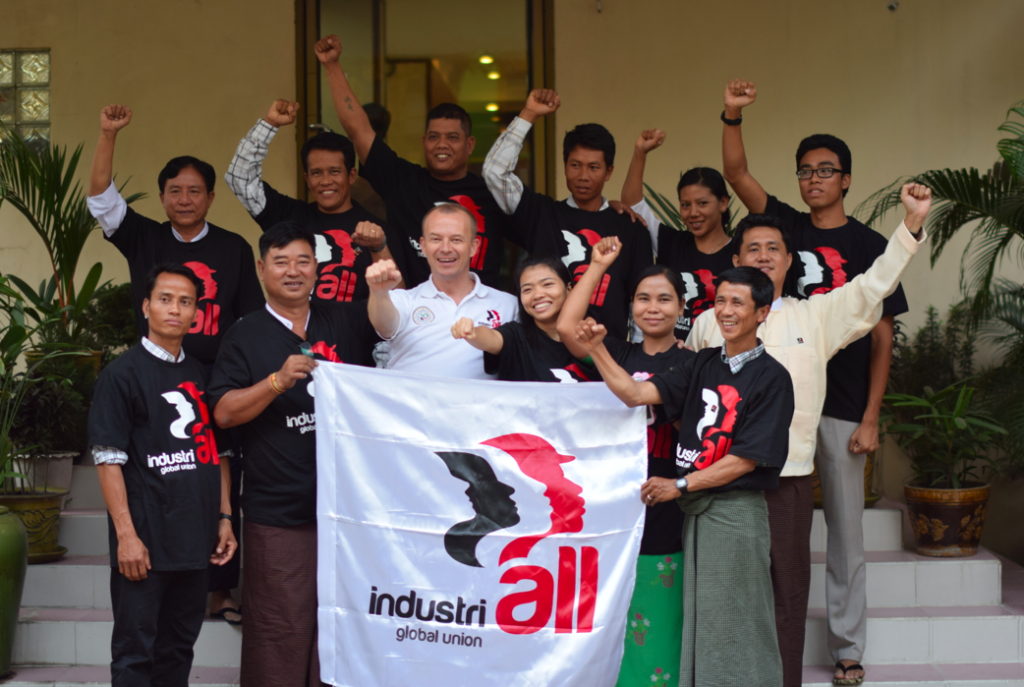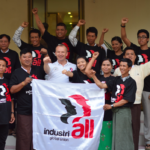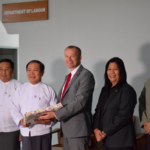11 March, 2015At a meeting with Myanmar’s labour minister on 9 March, Jyrki Raina, General Secretary of IndustriALL Global Union, called for a minimum living wage and funds for social welfare programs.
As of December 2014 IndustriALL has two affiliates in Myanmar; the Industrial Workers Federation of Myanmar (IWFM) and the Mining Workers Federation of Myanmar (MWFM). Both trade unions are affiliated to the Confederation of Trade Unions of Myanmar (CTUM).
Trade unions have only been allowed in Myanmar since 2012, when the country started to take first steps from a military regime towards democracy. Leaders of IndustriALL affiliates in the country stress the enormous need for training and capacity building, as well as laws that better protect the workers.
Wages in industry and mining in Myanmar typically vary between USD 60 and USD 200 per month. The government is in the process of setting a minimum wage and hopes to have it ready this spring. Jyrki Raina stressed the importance of setting a minimum wage that is sufficient to live on.
“Workers must receive a salary on which they can live. They must have reasonable working hours, a healthy and safe workplace, as well as the right to join a union.
“As Myanmar is opening up to foreign investment, these fundamentals send an important message to the world, not least in the garment and fashion industry which is sensitive to questions of image.”
Foreign direct investment is rapidly increasing, with a number multinational companies looking to establish operations in Myanmar in the years to come.
“IndustriALL supports building functioning labour-management relations at factory level. This will require the training of both union and management representatives. Here technical support from the International Labour Organization (ILO) is welcome”, said Raina.
A number of factories have been rocked by conflicts recently, with workers demanding higher pay. Raina commended the labour ministry for its efforts to help solve the conflicts, and said:
“These conflicts highlight the challenges ahead when building functioning collective bargaining mechanisms.”


